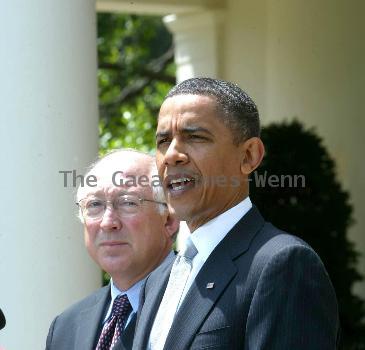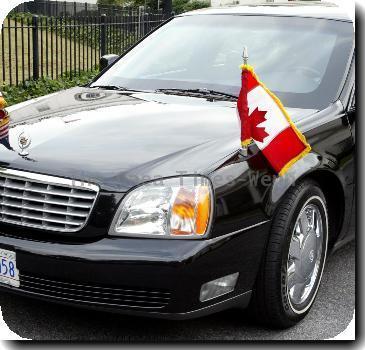Israeli prime minister says current restrictions on West Bank settlements won’t remain
By APSunday, September 12, 2010
Israeli PM: Current settlement curbs won’t remain
JERUSALEM — Israeli Prime Minister Benjamin Netanyahu said Sunday the current restrictions on West Bank settlements will not remain in place, though there will still be some limits on construction.
Israel’s 10-month freeze on new housing starts in West Bank settlements expires at the end of this month and is a key point of contention in newly launched peace talks with the Palestinians. Palestinian President Mahmoud Abbas has threatened repeatedly to quit the talks if Israel does not renew the restrictions.
Netanyahu told Mideast envoy Tony Blair, “the Palestinians demand that after Sept. 26, there will be zero building” in the West Bank.
“That will not happen,” Netanyahu said. Israel will not build “tens of thousands of housing units that are in the pipeline, but we will not freeze the lives of the residents.”
He did not provide details or timelines, but his statement means the ban on new housing starts would be at least partially lifted.
The prime minister the imposed a 10-month settlement slowdown in the West Bank to promote the resumption of peace talks. But several thousand housing units already being built were allowed to continue, and the measure does not apply to Jewish neighborhoods in east Jerusalem. Even so, there has been a de facto halt to new construction there as well.
Over the weekend President Barack Obama urged Netanyahu to keep the slowdown in place.
Members of Netanyahu’s Likud Party and government coalition partners oppose extending the restrictions on housing starts.
Blair’s office would not immediately comment about the details of his meeting with Netanyahu.
Palestinians repeated their threats to leave the talks after Netanyahu’s announcement.
“Our position is very clear,” said spokesman Husam Zomlot. “Should the settlement construction and expansion continue, we are out.”
Negotiator Nabil Shaath rejected one possible scenario — that Israel would halt construction in outlying settlements but allow building in settlement blocks closer to the Israel-West Bank line. Shaath said this would appear to give Israel the right to decide which settlements it will keep.
Palestinians want a state in the West Bank, Gaza Strip and east Jerusalem. They have expressed willingness to trade West Bank territory with Israel in exchange for Israeli land to allow some settlements to remain within Israeli borders after a peace deal, but no detailed agreement has been reached.
Netanyahu also told Blair the Palestinians must recognize Israel as a Jewish state, but he would not make that a condition for continuing the negotiations.
“I’m not saying that if this doesn’t happen, I will get up and leave the peace talks,” he said.
He also questioned the Palestinian stand on settlement construction, saying “it is not logical for the Palestinians to set a precondition and threaten to abandon the talks.”
Speaking at the weekly meeting of his Cabinet earlier Sunday, Netanyahu said that Israel recognizes the principle of two states for two peoples, the Israelis and the Palestinians, but the Palestinians speak only of two states. “I hear them saying ‘two states’ but I do not hear them recognizing two states for two peoples,” he said.
Palestinian leaders have refused to recognize Israel as the state of the Jewish people because some 20 percent of its citizens are Arabs, and the Palestinians claim the right of refugees and their descendants from the 1948-49 war that followed Israel’s creation — several million people in total — to return to their homes in Israel.
Israelis firmly reject that as an attempt to undermine the Jewish character of their state.
Netanyahu is to meet with Abbas on Tuesday for their first meeting since peace talks resumed at the White House earlier this month.
U.S. Secretary of State Hillary Rodham Clinton and former Sen. George Mitchell, Obama’s special envoy to the region, will be joining them for the meeting in Sharm el-Sheikh, Egypt. The scene will then shift to Jerusalem for a second day of talks on Wednesday.
Also Sunday, Hamas security officials said an Israeli tank opened fire on north Gaza, killing three Palestinians and wounding five more.
The Israeli military said soldiers opened fire on Palestinian militants who were about to fire a rocket-propelled grenade near the Israeli border.
Clashes between Israeli forces and Palestinians are common. Israel says Palestinians often try to infiltrate or plant explosives on the border and sometimes fire rockets and mortars at Israel.
Palestinians complain that Israel is enforcing a wide no-go zone in Gaza, and soldiers open fire on farmers and other civilians who enter.
Hamas is the militant Islamic group that rules Gaza. On Sunday, a top Israeli security commander warned Israel’s Cabinet that Hamas would try to torpedo the new peace talks, according to a participant in the meeting who spoke on condition of anonymity because the meeting was closed.
Shin Bet chief Yuval Diskin said his security assessment was based on evidence supplied by intelligence agents.
Hamas took responsibility for two shooting attacks that killed four Israeli civilians and wounded two others in the West Bank as the talks resumed.
Associated Press writer Ian Deitch in Jerusalem and Ben Hubbard in Ramallah, West Bank, contributed to this report.
Tags: Barack Obama, Gaza Strip, International Agreements, Israel, Jerusalem, Middle East, North America, Palestinian Territories, Territorial Disputes, United States, West Bank



